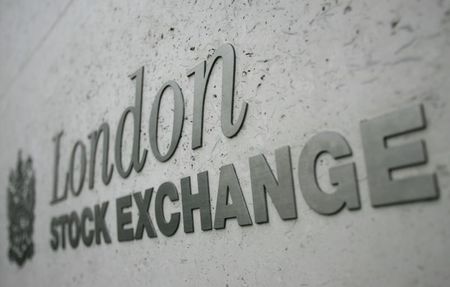By Alistair Smout
EDINBURGH (Reuters) - Britain's top equity index pared gains on Friday after U.S. jobs figures missed expectations, but it outpaced mainland Europe as commodity-linked stocks rose.
Traders said recent strong U.S. data had many investors believing the jobs report would beat the Reuters consensus estimate of 231,000. The figure came in at 214,000, wage growth remained subdued, and Wall Street opened slightly lower.
However, the first major jobs report since the Federal Reserve ended its bond-buying stimulus programme showed the unemployment rate falling to a fresh six year low, and a Fed official said the central bank should be "extraordinarily patient" in raising rates.
"Anything above 200,000 jobs added represents above average GDP growth. It won't bring forward the Fed's decision to hike rates earlier, but I don't think they'll be especially dovish after this," James Butterfill, global equity strategist at Coutts, said.
The blue-chip FTSE 100 index (FTSE) was up 0.1 percent at 6,560.02 points at 2.59 p.m.
Precious metal miners, among the biggest fallers in recent weeks, rose, with Fresnillo (L:FRES) up 4.4 percent, the top FTSE riser, as gold recovered from 4-1/2-year lows.
Oil firms were also given a boost even as the price of Brent failed to rebound from $83 dollars, near a four-year low.
Royal Dutch Shell (L:RDSa), the weightiest stock on the index, rose 2.3 percent and contributed over 10 points to the index's advance after Credit Suisse raised its target price.
Analysts at the bank argued that lower prices could benefit firms like Shell in the medium term.
"This environment could be good for the (oil) majors, helping them drive cost efficiencies and accessing resources on more favourable terms. Cyclical downturns can be used to build and strengthen businesses," Credit Suisse said in a note.
The index's heavy weighting in commodity stocks saw it outperform European peers, with France's CAC (FCHI) down 1.5 percent and Germany's DAX (GDAXI) down 1.4 percent.
Miners (FTNMX1770) rose 2.4 percent but remain down over 16 percent since the end of July, while oil & gas firms (FTNMX0530), down 11 percent over the same period, rose 2 percent.
The FTSE hit a peak of 6,904.86 points at the start of September, its highest since early 2000. It then slumped to 15-month lows in October as weak European economic data knocked back stock markets, but has since clawed back ground.
Berkeley Futures associate director Richard Griffiths expected the FTSE to make further progress, but not to get to earlier highs in the 6,900-point range by the end of 2014.

"I think it could push up a bit from here to 6,700 points, but I don't see it running back up to the earlier year-highs. I'd be looking to sell on any major rallies," he said.
(Additional reporting by Sudip Kar-Gupta, editing by John Stonestreet)
